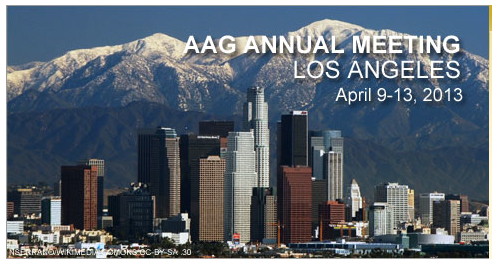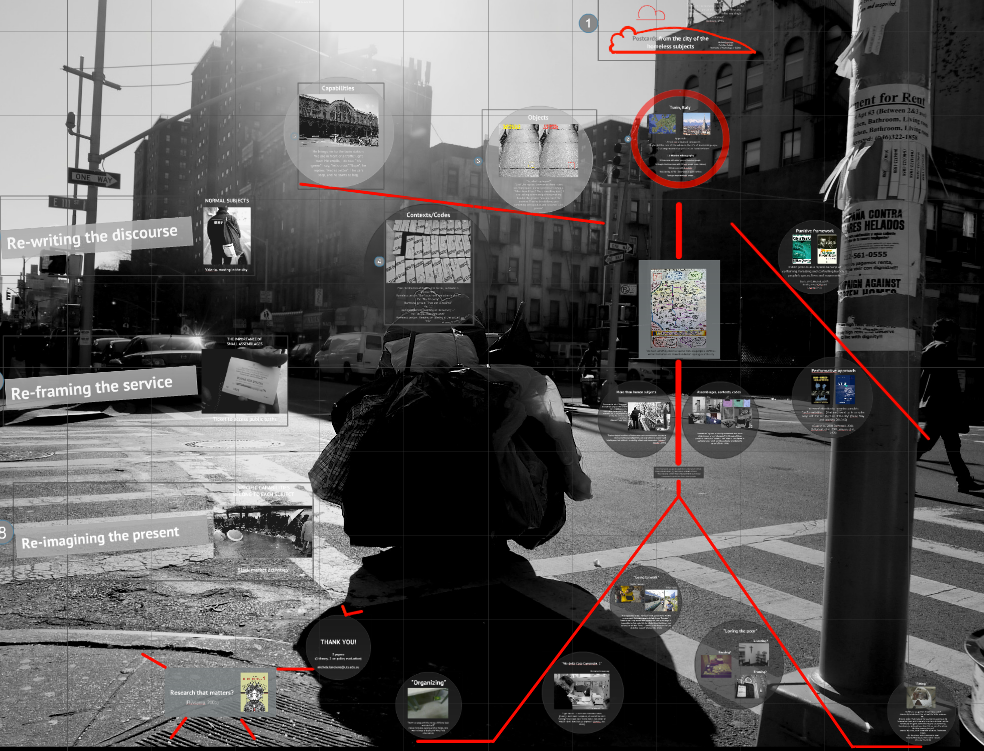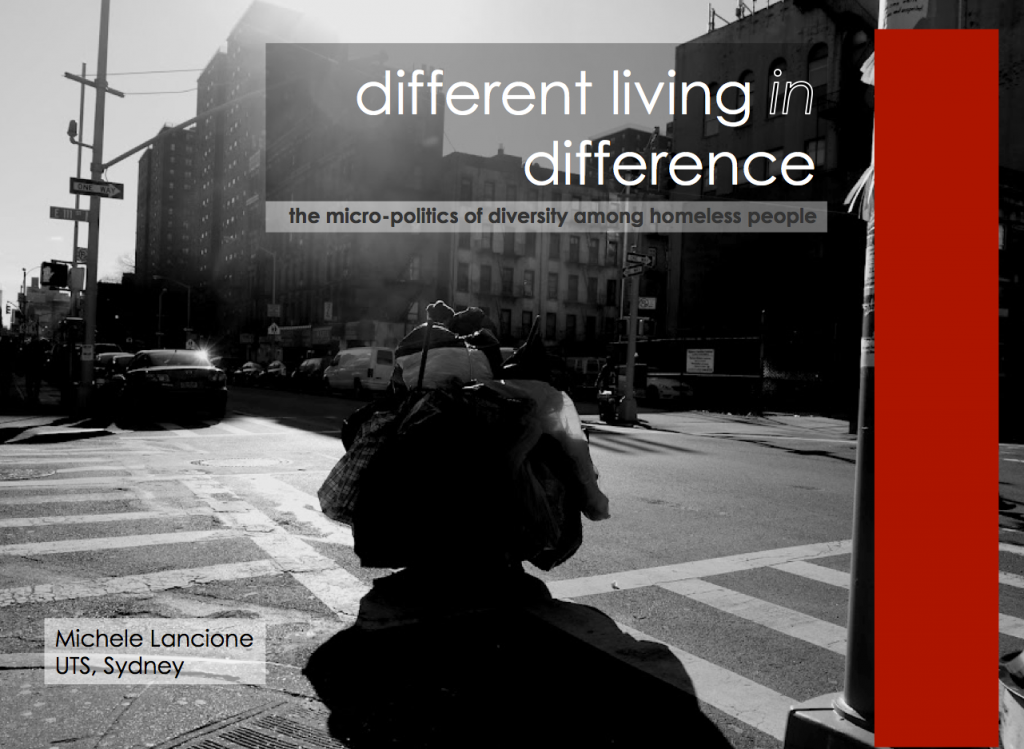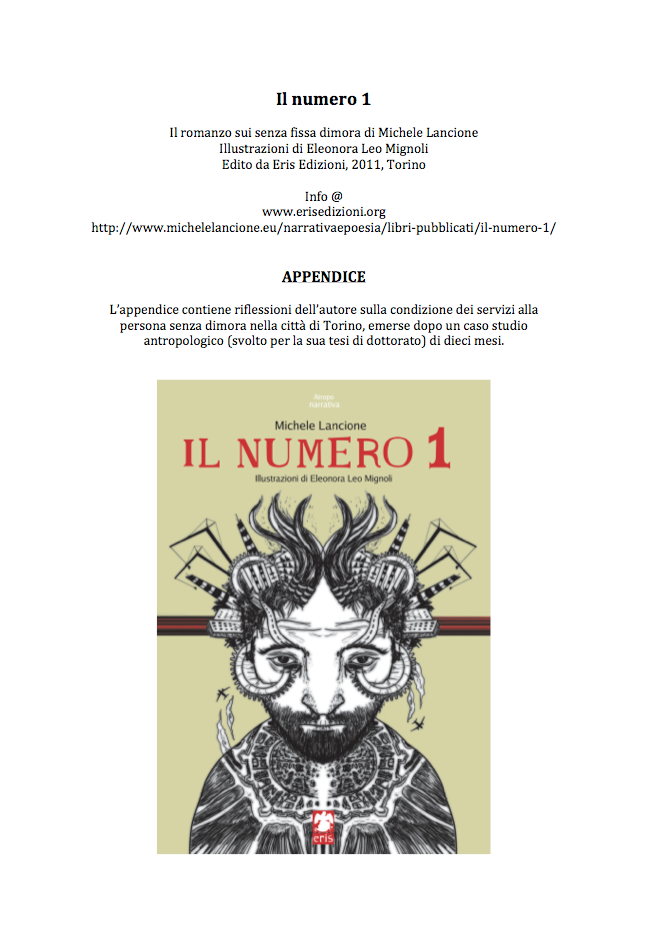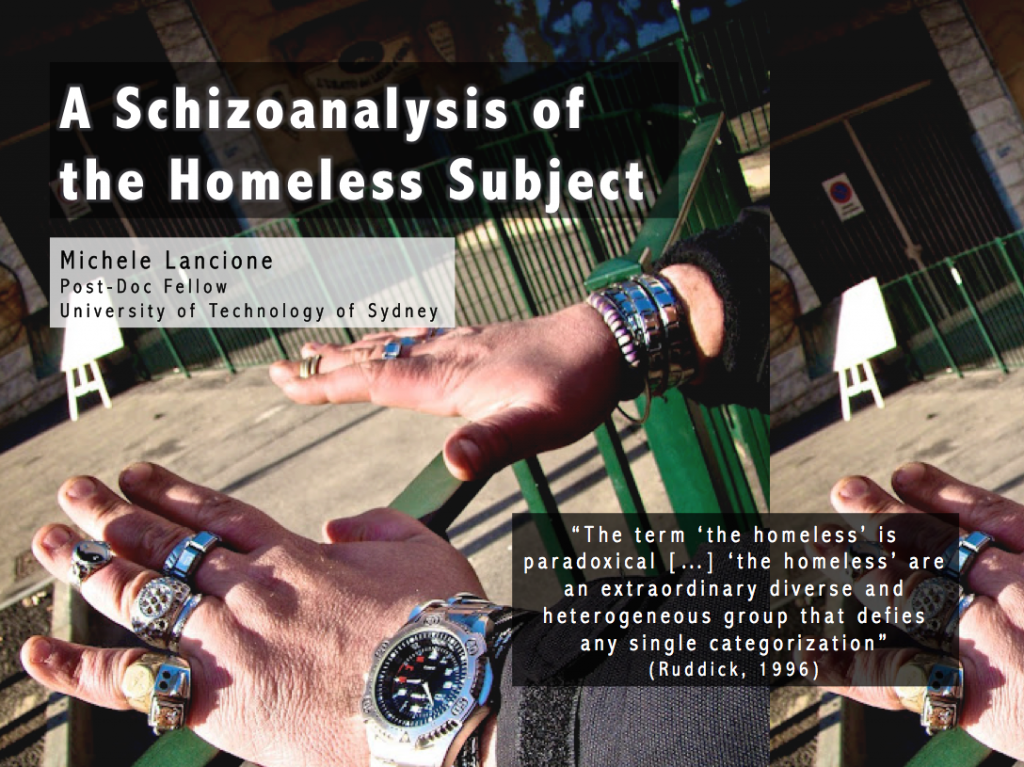From tomorrow I will take part to the Association of American Geographers annual meeting in Los Angeles. I will present in a session called “Geophilosophy and planes of urban experience” and I will be act as discussant in another session, called “Between the Punitive and the Supportive I: Urban Social Policy’s ‘Messy Middle Ground‘.
In the first I’ll be presenting a paper called “Walking the creative and diverse city”. The paper reflects around some initial founding of the investigation that I am undertaking on the “Goods Line” project in Sydney. The aim of this work is to critically confront the topic of the “creative city”, and to highlight issues of diversity related to it. Moreover, the paper introduces a particular take on the Deleuzian-Guattarian notion of “abstract machine”, understood as analytical device able to grasp the subtle dynamics related to urban redevelopment projects such the one investigated.
In the second session I have been invited by Gordon MacLeod (University of Durham) and Geoff DeVerteuil (University of Southampton) to comment on the papers that will be presented. This intervention is related to my research on homelessness.

